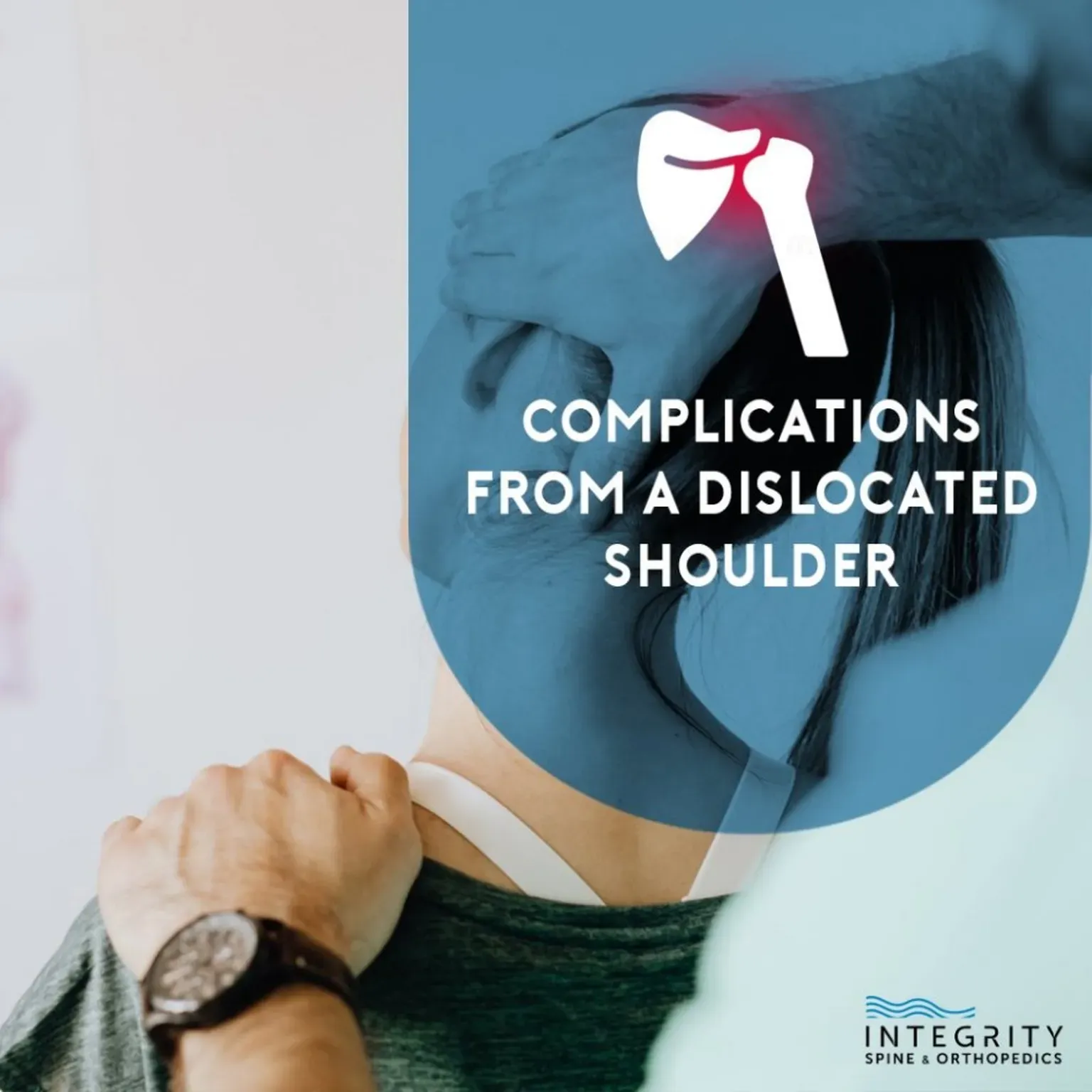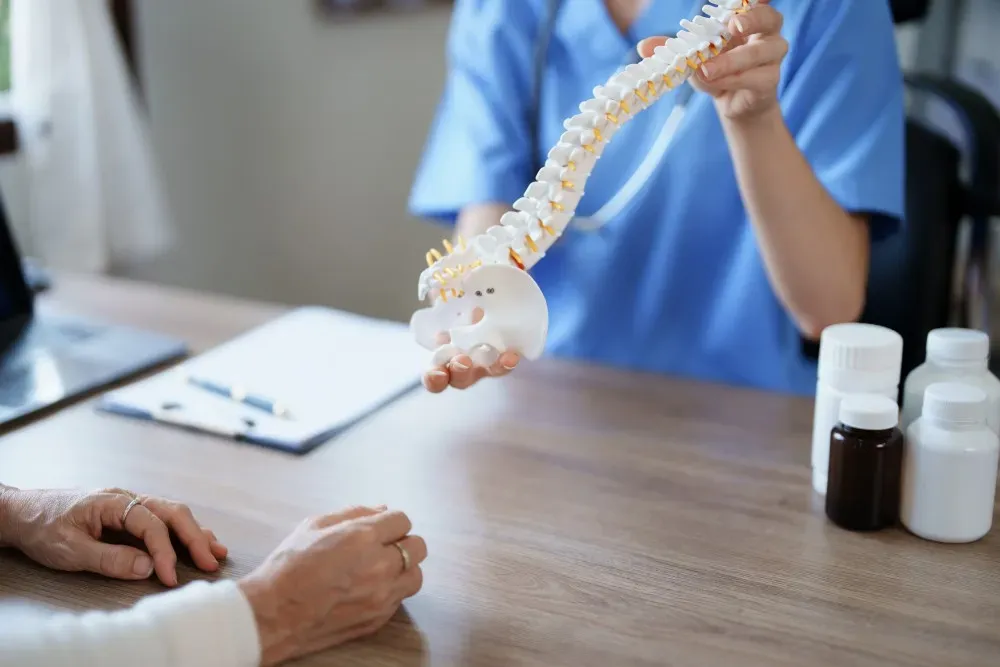Neurosurgery & Orthopedic Surgeons in Jacksonville

4 Complications of a Dislocated Shoulder
A dislocated shoulder is a painful and fairly common injury that occurs when the upper arm bone partially or completely pops out of its socket, which is attached to the shoulder blade.
A dislocated shoulder is a painful and fairly common injury that occurs when the upper arm bone partially or completely pops out of its socket, which is attached to the shoulder blade. The shoulder joint is the most mobile joint in the body, making it susceptible to dislocation injuries.
It takes a lot of force to pull the bones of the shoulder out of place — a direct blow, a sports accident, a hard fall, a car accident, or a forceful twist are common causes of dislocations. Teens and young adults who play sports are the highest risk group for dislocation injuries. Older adults are also a high-risk group. With age, the shoulder joint and connective tissues become weaker, and the shoulder can become dislocated more easily.
A dislocated shoulder is a very painful injury. If a partial or complete dislocation occurs, you may experience sharp, severe pain, swelling, bruising, and an inability to move the shoulder. Seek help immediately for a dislocated shoulder. Dislocation can cause several significant complications, including broken bones and chronic shoulder instability. Keep reading to learn more.
4 POSSIBLE COMPLICATIONS OF SHOULDER DISLOCATION
When the shoulder bones move out of place, the injury can damage the structures that surround and support the joint. The following are four complications that could occur.
- Soft tissue, nerve or blood vessel damage. The shoulder network is supported by a strong web of muscles, tendons, ligaments, nerves and blood vessels. A dislocation can tear, stretch or otherwise damage the joint’s soft tissues. An injury to the axillary nerve that supplies sensory information to the joint can cause shoulder weakness and numbness. In severe cases, a dislocation can damage the axillary artery, the large blood vessel that carries oxygenated blood to the upper arm.
- Recurring dislocations. Once your shoulder has been dislocated once, you have a very high risk of re-injury and recurring dislocations. When the shoulder repeatedly slips out of place, it’s called chronic shoulder instability.
- Fractures. Many people sustain broken bones when the shoulder is dislocated. The most common type of fracture seen alongside a dislocation is the Hills-Sach deformity, a fracture in the long bone in the upper arm.
- Rotator cuff injuries. Older adults have a higher risk of developing a rotator cuff injury with dislocation. These secondary injuries are sometimes difficult to identify and diagnose, and may require several clinic visits for your doctor to determine the full extent of the damage.
TIPS FOR PREVENTING COMPLICATIONS
Most shoulder dislocations heal within a few weeks with ice, immobilization, medications and rehabilitation. Some injuries may require surgery to repair torn or stretched tendons and ligaments.
Once your shoulder has healed, you’ll still be at risk of developing future dislocations and injuries. You can help prevent a dislocated shoulder by following the tips below:
- Don’t return to activities too soon. Don’t return to sports or high-intensity exercise until your injury is completely healed. Jumping into activities too soon increases the risk of re-dislocating or re-injuring your shoulder. Wait until you’re 100% cleared by your doctor before picking up sports and exercise again.
- Practice range-of-motion exercises. Incorporate range-of-motion exercises into your stretching, warm-up, or cool-down routine to maintain joint flexibility and movement. Remember to practice both internal and external rotation exercises.
- Practice strengthening exercises. Incorporate specific, shoulder-strengthening exercises into your workout routine. Additionally, make sure you’re including exercises that strengthen the surrounding muscles in the arms, chest and upper back.
- Rest and ice. Rest and ice your shoulders after performing strenuous activities. Icing the joint can help prevent pain, swelling and inflammation after overuse of the joint and muscles.
- Don’t ignore symptoms of an injury. Don’t attempt to power through shoulder pain. If you start experiencing pain, discomfort, catching, or popping in the joint, call your doctor for an evaluation. Early treatment, strengthening and rehabilitation can help prevent a more severe injury and long-term complications.
FIND STATE-OF-THE-ART ORTHOPEDIC CARE AT INTEGRITY SPINE AND ORTHOPEDICS
Whether you’re suffering from an acute injury or chronic pain, Integrity Spine and Orthopedics has the orthopedic care, pain management, sports medicine, and surgery services to help you to get back on your feet and back to doing the activities you love. Our board-certified and fellowship-trained surgeons specialize in providing minimally invasive, comprehensive care for a range of orthopedic and spine conditions.
We have a convenient clinic located in Jacksonville, FL. Please call us or reach out online to schedule your first appointment.




